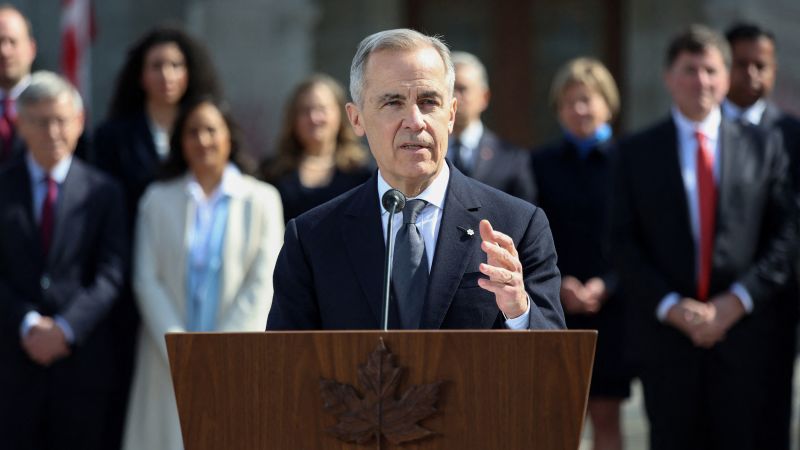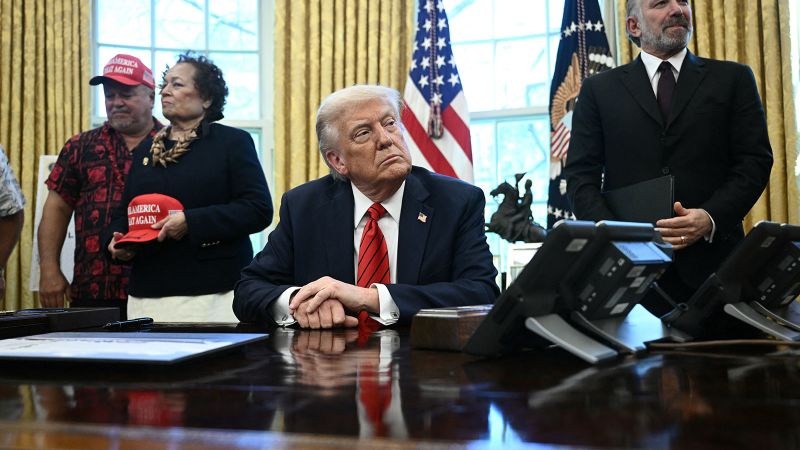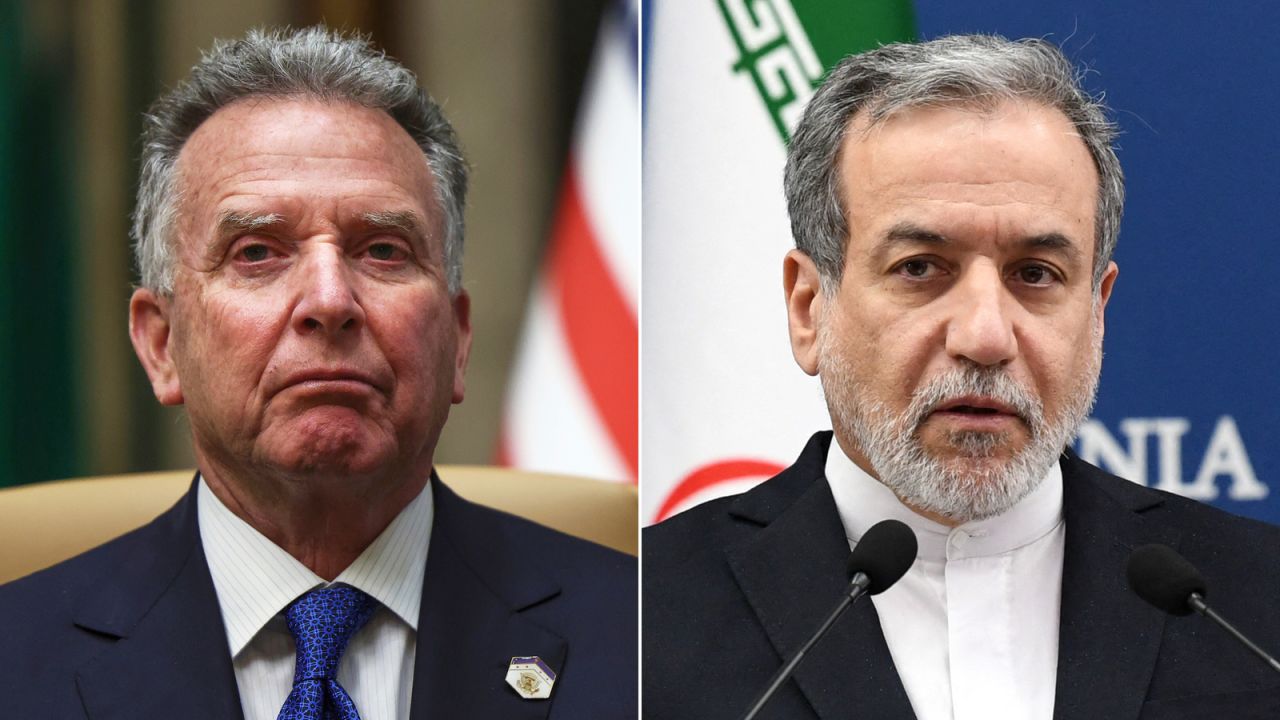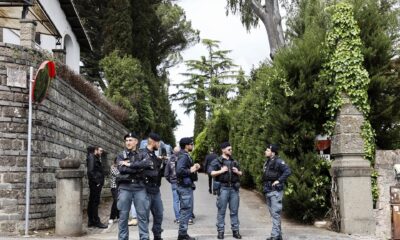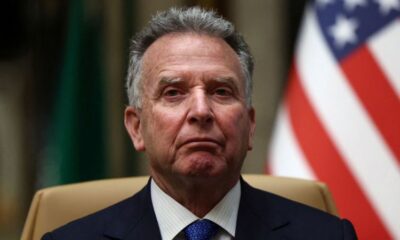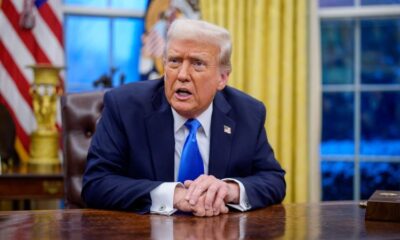CNN
—
Mark Carney has never been a politician.
Yet now he’s sworn in as Canada’s new Prime Minister on Friday, he will face two of the most complex political challenges of any rookie world leader in years.
First, he must win a general election that he’s expected to call almost immediately to try to capitalize on his Liberal Party’s revival after months in predecessor Justin Trudeau-inflicted doldrums.
If he wins, his prize will be a dubious one — dealing with US President Donald Trump. Just ask Ukrainian President Volodymyr Zelensky, who was mauled in the Oval Office bear-pit, just how much fun that can be.
Carney’s elevation is a classic confluence of a man and a moment.
But for Trump’s election victory and unprecedented threats to make Canada the 51st state, Carney would probably still be a private citizen and the Liberals would be heading for oblivion. But Trudeau’s resignation and a wave of patriotism swept up by Trump’s attacks left Conservative Party leader Pierre Poilievre, who was cruising towards the prime minister’s office himself, flailing.
Carney looks like a banker because he is one. He ran the central Banks of Canada and England, and he’s billing himself as a pro who can manage the worst crisis in Canada-US relations for at least 40 years. He’s an old school antidote to Poilievre, a talented young ideologue whose alliterative soundbites are a good fit for the social media age. But the Conservative leader has one glaring liability — he’s a little too Trumpy — a factor that suddenly threatens to down his rising star. Populism was his route to power. Until it suddenly wasn’t.
Poilievre’s problems and Carney’s arrival hint at a nascent trend 50 days into the new US administration. Trump’s return was widely seen as a harbinger of a second populist wave that would oust establishment figures all over the west. But a backlash against “America First” mayhem has lifted leaders seeking to operate in the political middle — that once looked like fallow political ground.
In Britain, Prime Minister Keir Starmer found fresh definition in the transatlantic tumult whipped up by Trump after a moribund start to his term that belied his landslide election win last year. His moving embrace of Zelensky after his disastrous visit to Washington was a show of independence from Trump and spoke for millions of Europeans. Starmer’s leadership holds out the possibility of a new era of UK-EU relations following the bitterness of Brexit. Beleaguered French President Emmanuel Macron — whose government keeps collapsing – is reborn as a Gaullist visionary, vowing to rebuild Europe’s military strength. And the rise of Germany’s likely next chancellor Friedrich Merz put the country on a stunning course out of America’s 80-year post-war tutelage moments after his general election victory last month.
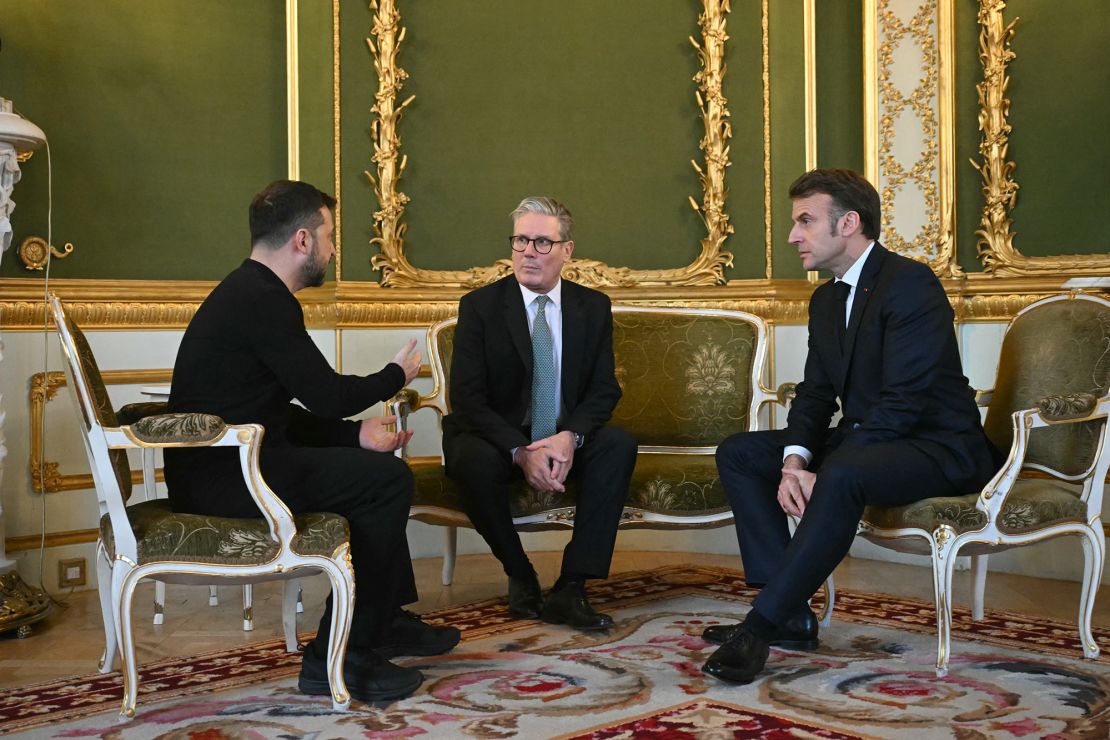
As leaders respond, far-right movements have been stalling. The anti-immigrant AfD did better than ever in Germany — but strong support from the Trump administration might have alienated some voters. The pro-Trump Reform party in the UK has been forced to distance itself from some Trump policies and the wild rhetoric of Elon Musk. French right-winger Marine Le Pen must be wondering whether antipathy to Trump could frustrate her National Rally’s hopes for a long-awaited breakthrough in the next French presidential election in 2027.
Macron and Starmer have evolved the classic how-to-deal-with Trump playbook. To self-demeaning flattery, they’ve added personal steel. By correcting the president’s falsehoods while in the Oval Office. Zelensky came a cropper when trying the same thing — but his stock soared back home at a time when Trump seems to be trying to oust him. And with the help of European leaders, he called Russia’s bluff by agreeing to Trump’s Ukraine ceasefire plan.
But Carney has bigger problems. After all, Trump is not openly attacking British or French sovereignty. The new PM can’t afford to ignore Canadians’ fury. A cynic might argue that if he calls a snap election, it suits him for cross border tensions to last until voters go the polls.
Carney must also recognize reality. If a full-bore trade war rages between the US and Canada, there will be only one winner. Or more accurately, given the damage wrought by tariffs — one biggest loser – since both nations will be hurt by an estrangement in one of the world’s most lucrative trading relationships. To find a way out, Carney must ensure his campaign trail rhetoric doesn’t close off an eventual settlement with Trump.
The answers do not lie in Britain or France. They might be found in a speech by 91-year-old Jean Chrétien, the former Canadian PM who stole the show at the Liberal convention in Ottawa last weekend.
The old master waxed lyrical about his own confrontations with the US in a stirring defense of Canadian identify and patriotism. He peered into a camera and upbraided Trump: “I can say this from one old guy to another old guy: ‘Stop this nonsense. Canada will never join the United States.’”
But amid fierce anti-Americanism, Chrétien also kept alive the prospect of an eventual, and necessary rapprochement. “We have worked with and collaborated with the United States in the past, and I’m telling you, we will do so in the future.”

